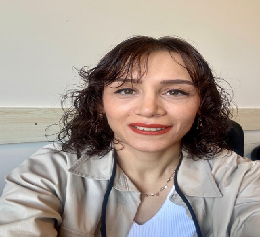INTERNATIONAL WOMEN'S FORUM
THEME: "Breaking Barriers, Shaping the Future of Women"
 17-18 Mar 2025
17-18 Mar 2025  Amsterdam, Netherlands
Amsterdam, Netherlands THEME: "Breaking Barriers, Shaping the Future of Women"
 17-18 Mar 2025
17-18 Mar 2025  Amsterdam, Netherlands
Amsterdam, Netherlands 
Ondokuz Mayis University, Turkey
Title: Analysis of the Challenges Faced by Women After Disasters in the Context of Gender Inequality: A Meta- Synthesis Study
Bilge Turkoglu works at the Social Work Department of Ondokuz Mayis University. She completed her bachelor’s and master degree at the Social Work Department of Ankara University. She completed her doctorate in clinical social work. She teaches many courses. Her main research areas are traumatic experiences, neglect-abuse, foster care, women's studies, women's rights and welfare, gender, gender inequality, ecology and sustainability.
Disasters, whether natural or human-induced, have devastating effects on individuals and societies. The primary consequences of these effects include loss of life, as well as economic, social, and cultural losses. It is also well known that disasters negatively impact individual and community mental health. The reflections and levels of experience of these losses at both individual and societal levels vary based on gender. This situation leads to double disadvantage for women, who are among relatively vulnerable groups. After disasters, women face the risk of contracting various infections and contagious diseases due to unhealthy living conditions, difficulty in accessing clean water, and especially the lack of menstrual hygiene products. Additionally, reproductive and sexual health issues can arise, leading to complications such as pregnancies resulting in preterm birth or miscarriage, which pose significant threats to maternal and newborn health.
It has been reported that the domestic responsibilities traditionally assigned to women within the framework of gender roles—such as housework, cleaning, cooking, and caregiving—remain unchanged after disasters and that women experience high rates of domestic violence and abuse. Additionally, women are at a higher risk of mental health issues such as depression and post-traumatic stress disorder (PTSD). Consequently, disasters exacerbate gender inequality in their aftermath. It is essential to understand the challenges women face after disasters and to empower them at individual, cultural, and structural levels. Moreover, efforts to support women in overcoming these difficulties are considered crucial. Based on this need, this study synthesizes qualitative research on the challenges experienced by women in post-disaster settings in Turkey using the meta-synthesis method. In this context, recommendations are provided to promote women's empowerment.